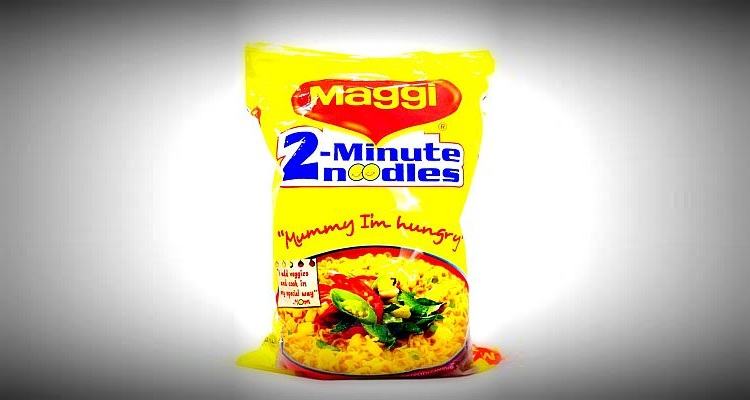By Udai K Saxena
Nestle may be noodling away from Maggi mess in the export market but troubles on the domestic front may last longer than expected, and not just for “ two minutes”
The recent incident of ‘Maggi Recall’ stands out as the most significant instance of such an occurrence in the history of Indian food safety measures, with Nestle India destroying Maggi packets to the tune of Rs 320 crore following the recall. Now, the export market has given the brand a clean chit, with the Canadian Food Inspection Agency (CFIA) declaring it fit for human consumption. Canada is the fifth country after the UK, Singapore, Australia and New Zealand, to say Maggi is safe. But the hard fact of the matter is the noodle giant has still to clear its name back at home, where it’s still embargoed indefinitely.
The food processing sector needs to institutionalise the testing of its products as per the stipulated Indian protocols rather than relying on testing of same products manufactured elsewhere without proper scientific justification
In this observer’s independent opinion, there could be multiple major reasons for this, but to name a few:
- Validating the systems of evaluation of product safety less often than needed in wake of ever emerging risks, advancements in technologies and changing regulatory requirements emphasising on food safety of consumers.
- Over reliance on international food safety data generated on same or similar product over local product tests results.
- Taking local regulatory compliance not so seriously in view of highly trusted brand tag globally.
- Probable System lapse leading to entry of non compliant material in the market unintentionally.
- Delayed response by manufacturers to the alarming issues that are raised about the safety of food product by food regulators.
- Over reliance on technocrats on the pretext that all is safe and sound if under their supervision, without exercising due diligence.
- India is a developing nation, hence, whatever is done here by multinationals will always be acceptable and regulators can be challenged or pronounced as less efficient than developed nations, unconditionally.
- Marketing and advertising can handle any technical issues because aggressive marketing does wonders.
- International labelling of a product must be acceptable everywhere although may be non conforming to the local laws in whatsoever manner.
The issue of Maggi failing the Indian Food regulators acid test has raised challenges, which need to be tackled not only by Nestlé but any food business operator, Indian or multinational. It is high time for every food business operator, big or small, to take the Indian Food Safety and Standards Act more seriously. With the reports of non conformance with the food regulatory tests and the higher-than-prescribed quantities of lead and Mono Sodium Glutamate (MSG), it is time we abandon the arsenic assumption that food manufacturer in general and a global food multinational in particular can never go wrong.
Nestlé India has faced a drastic action leading to hefty financial losses for this fiasco. If they want to stay in the game and revive their instant noodle business in India all over again, they will have to come up with conclusive evidence to diffuse the crisis and defend the reputation of their product as safe.
The resolution needs to be science based and not blended with emotional flavours for that will only worsen the scenario. This incident further leads to putting not only the noodle manufacturers but the entire food processing sector under a critical lens. This will lead to more surveillance and rigorous monitoring by the food regulatory authorities at a much higher frequency. This is also evident by the present day actions of Food Safety and Standards Authority of India (FSSAI) all over the country, with a view to protect consumer from potentially unsafe product being placed in the market.
Considering that prior to the present recall, Maggi ruled over 80 percent of the instant noodle market, the coast is clear for other instant noodle makers to claim their share provided they can prove the safety beyond doubt. But the food processing sector needs to institutionalise the testing of its products as per the stipulated Indian protocols rather than relying on testing of same products manufactured elsewhere without proper scientific justification, or they too, risk similar consequences. If one attempts to see the other side of the coin, it remains a fact that no food business operator (FBO), with its backing of massive research and development of years going into each product will overlook such glaring issues on product safety. Such errors can forsooth occur in a fraction of second, if food safety systems are not evaluated rigorously for their continued reliability and accuracy vis-à-vis the regulatory requirements.
It has been witnessed that more vigorous and expeditious actions are being initiated by food authorities in view to scrutinise the safety of the existing food products available in the Indian market, although these products might have earlier been provided a No Objection Certificate
(NOC), or product approval, being proprietary products. This trend is likely to exist, hence, the food business operators must be self compliant in light of the true spirit of the Food Safety and Standards Act 2006, the main aim of which is shifting from a regulatory regimen to self compliance.
![]() Udai K Saxena is an independent food safety and systems consultant and is associated with various organisations in different independent capacities
Udai K Saxena is an independent food safety and systems consultant and is associated with various organisations in different independent capacities



Leave a Reply